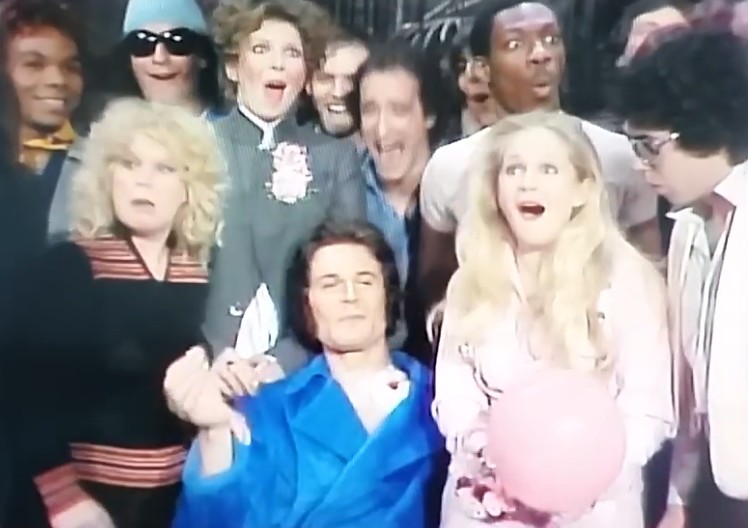Today in 1965, a landmark moment in the history of televised profanity: an f-bomb live on the BBC.
At the time it was so far out of the ordinary that lawmakers were raising motions in Parliament about it; today, you’ve got your choice of four letter words on show after show and not that many viewers are (expletive) off about it.
Ironically, that first use of the f-word on a live program was during a discussion of censorship.
Critic Kenneth Tynan was trying to say that while there were social norms about swearing, there were actually very few quote “rational people in this world to whom the word `f__k’ is particularly diabolical or revolting or totally forbidden.”
After which plenty of people (I can’t say whether they were rational or not) called the BBC to say they were outraged about Tynan’s use of that word, and the network had to apologize.
Swearing on TV just wasn’t done in those days; even saying “hell” or “dammit,” like Dr. McCoy used to say on “Star Trek,” was really pushing it.
Broadcast TV uses public airwaves, so, at least in the US, the Federal Communications Commission could make sure that the language on those programs lived up to a largely undefined set of “community standards.”
This is where it got tricky, as comedian George Carlin pointed out in his famous routine about the seven words you can’t say on television.
Like a certain three letter word starting with A: if you were talking about a donkey, the word was fine, but if you used it to refer to a person’s back end (especially one you were planning to kick), that was not fine.
But that only applied to broadcasting; in the 1970s, cable TV started becoming a big deal, and while ad-supported basic cable channels often followed the same rules as broadcast ones, subscription-based cable services let the expletives fly.
They could run movies without covering up swear words, or have live broadcasts with no bleeping.
That meant more swearing, which meant that some words became less shocking and actually changed community standards, which honestly were becoming more swearing-friendly anyway.
In time, shows like “Maude” and “MASH” had characters calling other characters SOBs.
By 1999 there was even an S-word on the network medical drama Chicago Hope.
Heavy-duty swearing on broadcast TV is still done relatively rarely, and an unbleeped f-bomb is still a big no-no most of the time.
But times change: forty years after the BBC had to apologize for one f-word on its air, it was broadcasting the satirical political series The Thick Of It, which not only had countless curse words in its dialogue, the production team included a person whose job title was “swearing consultant.”
I mean, holy (expletive).
Today in 1957, an article in the Guardian newspaper with a wild idea.
Shortly after the Soviets made Laika the dog the first living Earthling to go to space, a speaker at a Church Assembly in London said it was time to get people’s attention away from modern technology and back toward faith.
His solution: sending a bishop into space!
So far I don’t think they’ve actually tried it.
Bleep This: A Brief History of Profanity on Television (Mental Floss)
Bishop in Space (Weird Universe)
Just (expletive) go to our (expletive) Patreon site and back our (expletive) podcast

